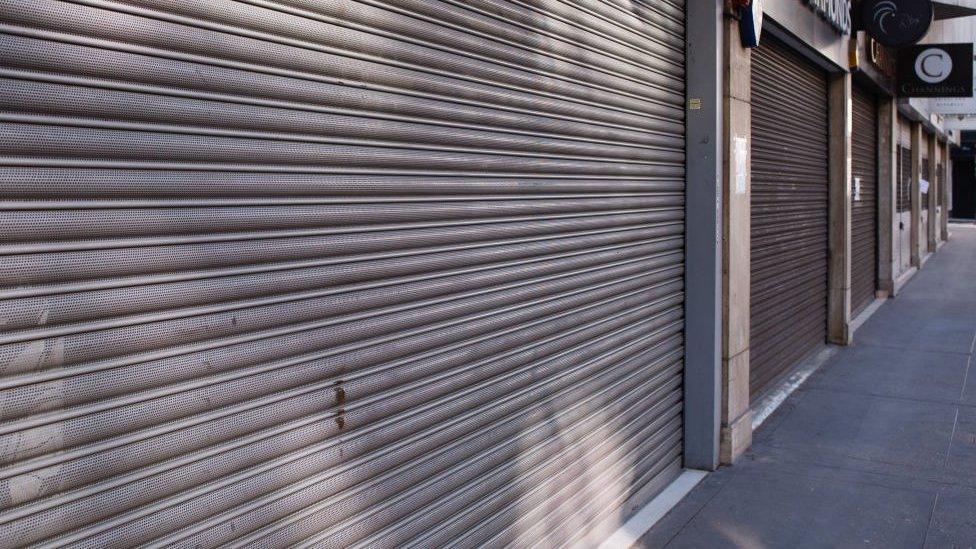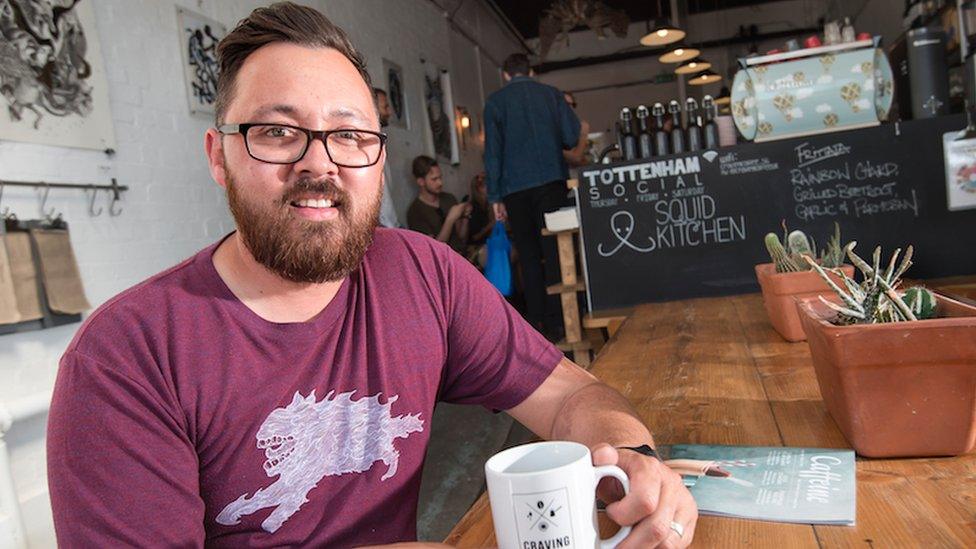Recovery expert: 'Some businesses will never reopen'
- Published
- comments

When economies eventually re-open, many businesses will stay shut as they struggle with the new environment.
That is the fear from a global disaster recovery group that helps businesses recover from crises like coronavirus.
Small business owners are more vulnerable and may have to become entrepreneurs again to survive.
"Restarting a business is much harder than shutting one down," says the Disaster Recovery Institute International (DRI).
"When the economy reopens, it won't go back to how it was all at once," said Chloe Demrovsky, chief executive of DRI, a non-profit organisation. "Our habits may have changed together with the width of our wallets."
During coronavirus lockdowns, activities such as grocery shopping, movie watching, company meetings and e-learning among others have largely moved online. These may not be short-term trends, and companies will need to adapt to them as our buying behaviour changes.
"Individual decisions like that will be multiplied throughout countries and the world as a whole. Businesses that aren't getting creative now about how they can be useful in a new post-Covid economy will struggle," said Ms Demrovsky.
While highly-regulated large businesses have robust contingency plans and strong risk management programmes, smaller firms normally don't. "These businesses will continue to suffer and many will never reopen. What we've seen after community-wide crises in the past is that anyone who was a small business owner is now an entrepreneur all over again and should be approaching the problem from that perspective."
The new normal
The business disaster experts say firms should be planning for measures like fewer hours, staggered shifts and more shift changes for their staff.
For retailers, they should be preparing for more distance between customers, and individually packaged food (no samples or testers). They may need policies in place to reassure customers and employees such as extra and visible cleaning, along with proper protection for employees like masks, gloves and temperature checks.
"Some things may change forever. Conferences and large events will likely be cancelled or sparsely attended for a long time. This may be the nail in the coffin for shared workspaces and open office floor plans as we all now realise the importance of walls," added Ms Demrovsky.
If schools remain closed, or move to regular home learning days, employers will need to be understanding and flexible towards working parents.
- Published16 April 2020
